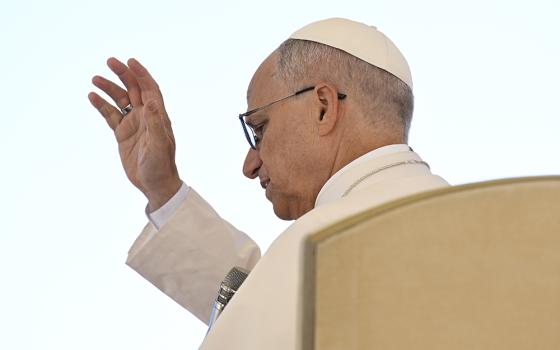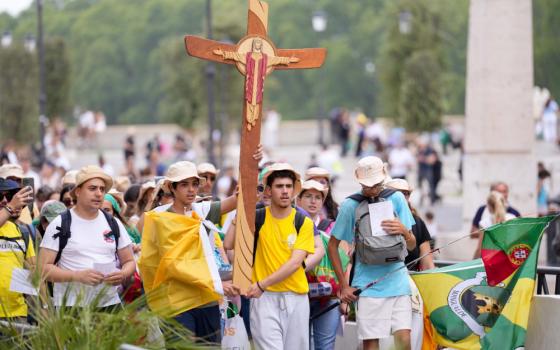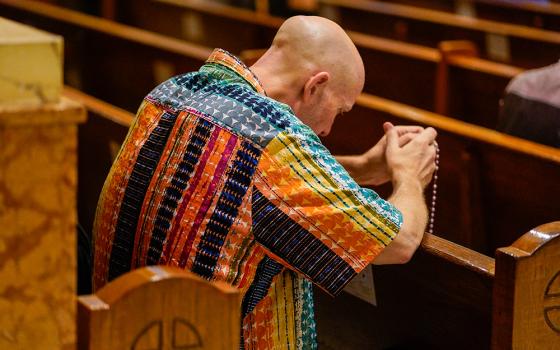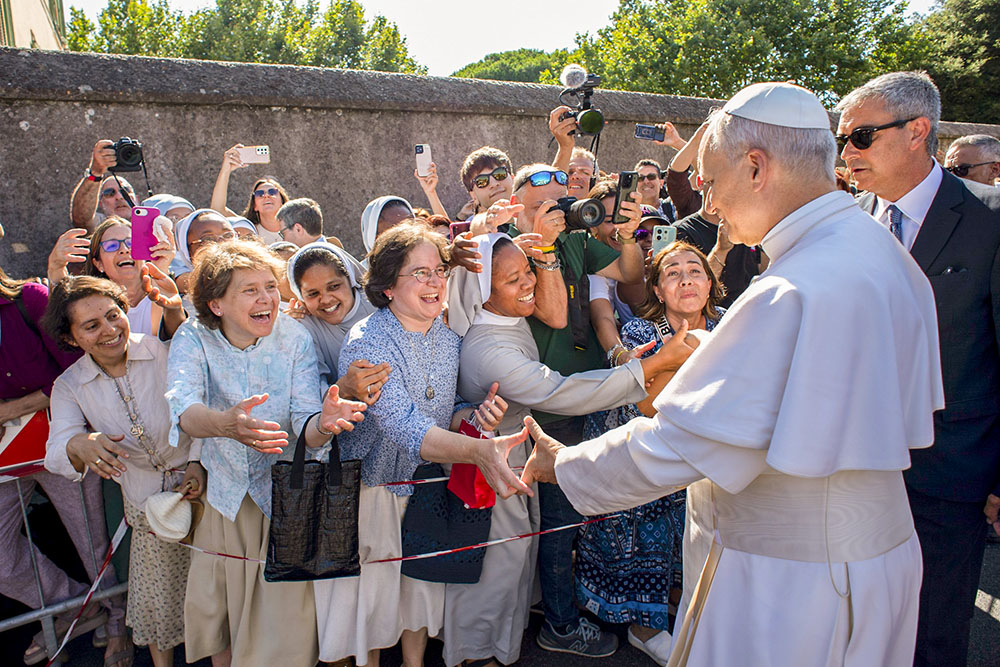
Pope Leo XIV greets people as he arrives in Castel Gandolfo, Italy, July 6, 2025, after reciting the Angelus at the Vatican. (CNS/Vatican Media)
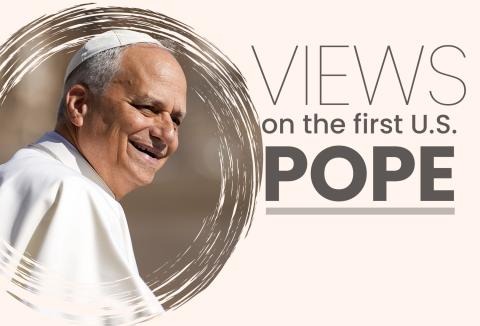
For much of my adult life, when asked about my faith tradition I would shrug and say, "I was raised Catholic." It was a polite way of saying I had drifted — from the rituals, from the certainty, from the church itself.
When I was growing up in Texas, Catholicism was central to our lives. We went to Mass every Sunday, my mother served as a eucharistic minister and my parents never failed to drop an envelope in the offering basket. But as I got older, my own faith was tested, slowly replaced by doubt, distance and disillusionment.
Then, something shifted. Over the last year and a half, my perspective has evolved. In April 2024, I was blessed with the rare opportunity to interview Pope Francis — what would become his final and only U.S. television interview before his death at age 88. The conversation took place nearly a year to the day before his passing. A Vatican priest told us it was no coincidence, but a sign from God.
The 266th leader of the Roman Catholic Church was warm, humble and engaging. Sitting in his modest residence at Casa Santa Marta, he greeted us with kindness and answered each question with thoughtfulness — aware that his words carried meaning not just for Catholics, but for the world.
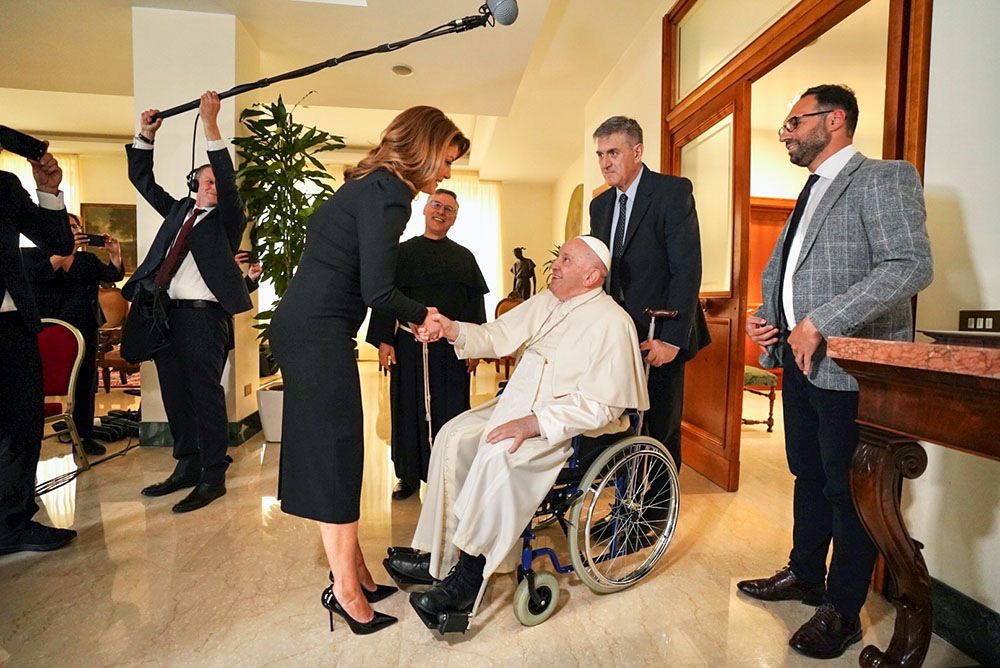
Pope Francis welcomes CBS News senior correspondent Norah O'Connell to Casa Santa Marta at the Vatican in April 2024. (CBS News/Adam Verdugo)
"The heart must be open," Francis said. And somehow, mine was.
That experience alone would have stayed with me forever, but what followed was even more surprising. It wasn't a pope who changed my faith. It was a nun.
Her name is Sr. Rose Pacatte, a Daughter of St. Paul, and she radiates joy.
On the eve of this year's conclave, just before the cardinals gathered in secrecy to choose the new pope, my team and I went to St. Peter's Square. By some act of grace, Sister Rose arrived at the same moment. People who watched our interviews with her ask how we found her. The truth is, she found us.
From the moment we hugged on that beautiful Roman night, Sister Rose and I connected deeply. We spoke about Francis' legacy and her hopes for the future of the church.
Advertisement
As a mother, I've come to believe that women are the backbone of the church: Nearly 600,000 women serve as nuns around the world. I asked Sister Rose whether women should have a greater ministerial role. She didn't hesitate: "Yes."
She told me, "What people need to realize is that if there's a problem and women are not a part of the solution, it will not be solved in any type of long-term, meaningful way. Women have to always be a part of the solution."
Yes, say it louder for the people in the back! Women have to always be a part of the solution.
Francis, too, acknowledged the power of women. "Women are the ones who move changes forward, all sorts of changes," he said. "They are braver than the men. They know how best to protect life."
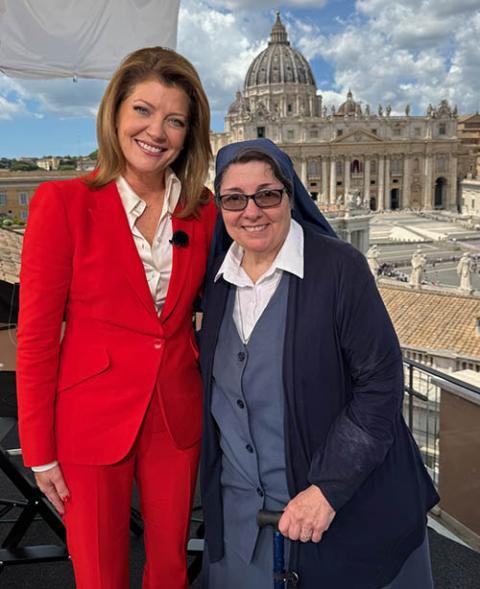
Norah O’Donnell and Daughter of St. Paul Sr. Rose Pacatte pose for a photo overlooking the Vatican during the 2025 conclave. (Courtesy of CBS News)
But he also added, "Making space in the church for women does not mean giving them a ministry." While Francis shattered some glass ceilings at the Vatican — appointing more women to positions of power than any people before him — he remained unequivocal that women could not be ordained.
Sister Rose believes Francis brought the church closer than ever to truly elevating women. But the question lingered: Who would take that work further?
She had an answer: Cardinal Robert Prevost, a quiet, dark-horse candidate to be the next leader of the Catholic Church.
Days later, the world watched as we broadcast live on television as he was elected Pope Leo XIV. The Vatican's first pope from the United States. We rushed back to Sister Rose to ask how she saw it coming when so few did. Not even many of the Vegas oddsmakers considered it a possibility.
"I actually cannot explain it," she said with a smile. But she stood by her conviction that Leo XIV would open more doors for women. In his first curial appointment, the pontiff named Sr. Tiziana Merletti, a member of the Franciscan Sisters of the Poor, as secretary of the Dicastery of Apostolic Life. She now serves under Consolata Missionary Sr. Simona Brambilla, the Vatican's first female prefect, appointed by Francis.
When there's a new pope, the same question returns: Will the church change — or stay the course?
We asked that question to one of the conclave's few Jesuit electors, Canadian Cardinal Michael Czerny. His answer changed my entire perspective.
"The choice is not between continuity and change," he said. "The choice is to go forward, and that includes both continuity, and change."
And now, we wait and we watch to see how Leo XIV goes forward with both continuity and change. There's hope he will continue Francis' legacy of humility and inclusion, hope that he embraces the voices of women. I believe Sister Rose said it best: "We don't know what the future holds, but I just want women to be included and to be part of the solutions to the problems in the world, and to be listened to."
That belief has given me faith. And today my heart is more open than it's ever been.




